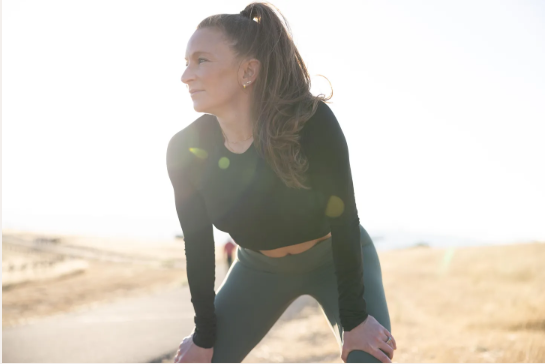Be For Things, Not Against Them
There is a weight that many of us feel right now—a heaviness that stems from watching the world shift in ways that seem to undermine the very foundations of knowledge, progress, and human wellbeing.
It can be easy to get lost in frustration and fear, to spend our energy railing against forces that appear intent on unraveling decades of work. I’ve been finding myself in the rage trap often these past few weeks, doom scrolling until I feel hopeless and helpless, with every day bringing a new shock and horror.
But, after much reflection and conversation with colleagues, mentors, and friends, I want to offer perspective.
Let’s be for things, not against them.
As someone who has spent my career bridging the gaps between science, education, and wellness, I have seen firsthand the power of knowledge to transform lives. I have also witnessed the resilience of my colleagues from all aspects of my professional life when faced with extreme challenges— never more so than in the past few weeks. My scientific world is reeling.
Now, more than ever, we need to take deliberate steps to support and uplift the people, organizations, and initiatives that are advancing health, science, and wellbeing. We have a choice to focus on proactive engagement rather than reactive outrage.
At the same time, it’s crucial to recognize the distinction between calling out misinformation and reacting with hostility. You can always rely on me to call out BS when I see it. We must remain vigilant against the spread of falsehoods, particularly when they threaten public health and scientific progress. However, this vigilance does not have to come in the form of contempt and antagonism.
Instead of fueling division, we can drown out misinformation with truth—by consistently sharing clear, evidence-based information, engaging in thoughtful dialogue, and leading with integrity.
The goal is not to silence opposing voices through anger and force, but to make truth so accessible and compelling that it speaks for itself.
I know this is asking a lot in our current state of shock and helplessness. But, here are three ways I plan to take action—and how you can, too.
1. Strengthening science communication and public education
Misinformation and confusion thrive in moments of uncertainty. One of the most effective ways to counteract this is by ensuring that accurate, evidence-based information is accessible, digestible, and actionable.
Science must be brought into everyday conversations in ways that empower people rather than alienate them.
I’m committed to expanding my work in science communication through writing, speaking, and teaching. This means:
Continuing to develop evidence-based content that helps healthcare professionals, coaches, and the public understand the vital role of nutrition, exercise, and other lifestyle behaviors in the context of wellbeing, human performance and healthy aging.
Using my platform to share clear, research-backed information that people can apply to their lives.
Engaging with media outlets, podcasts, and conferences to amplify the voices of scientists and practitioners dedicated to human health.
How you can take action
Whether you are a scientist, teacher, healthcare provider, or simply someone who values knowledge, you can contribute to better science communication. Share reliable sources. Identify misinformation but don’t share it. (MIT researchers have found that false information spreads up to ten times faster than verified news on social media, while the corrections that follow rarely achieve the same reach or impact.) Have open, thoughtful conversations with your community about health, wellness, and scientific literacy. Your voice matters.
2. Embracing curiosity and open-mindedness in health and wellness
The world of health and wellness is filled with strong opinions, entrenched beliefs, and sometimes, outright hostility between opposing viewpoints. And to be clear, scientists are facing an uphill battle with recent appointments and impending mandates. But real progress happens when we approach new ideas with curiosity, openness, and a commitment to evidence.
We cannot afford to park ourselves in ideological silos, shouting across the divide. Nor can we be so naive to be swept up in every passing trend, chasing the latest tip, trick, or potion without scrutiny.
I will foster a mindset that balances open-mindedness with scientific rigor by:
Encouraging discussions that challenge my existing beliefs while remaining grounded in evidence.
Engaging with those who think differently and seeking to understand their perspectives with empathy rather than dismissiveness.
Using my industry-based lab and academic partnerships to rigorously investigate emerging health trends and interventions that currently lack sufficient scientific evidence,
How you can take action
Be willing to question your own assumptions while holding firm to well-supported conclusions. When confronted with a new idea, ask, "What does the evidence say?" rather than reacting immediately in the affirmative or dismissively. Have conversations with those outside of your circle and listen with curiosity rather than responding with hostility. Challenge yourself to be both open-minded and discerning, learning and growing in ways that strengthen your understanding rather than harden your stance.
3. Fostering collaboration and interdisciplinary innovation
Now is the time to double down on collaboration. I wrote about this with a colleague, Dr Rich Joseph, in STAT news. The most groundbreaking advances in health and science have emerged not from isolated efforts, but from the intersection of multiple disciplines and perspectives.
I’m dedicating myself to fostering greater interdisciplinary collaboration by:
Strengthening partnerships between academic institutions, health organizations, and industry leaders to drive innovation that crosses the borders of wellness and healthcare.
Encouraging open dialogue between scientists, healthcare providers, and the public to ensure that research translates into practical solutions.
Supporting young researchers and practitioners who are bringing fresh ideas and energy into the field.
How you can take action
Collaboration isn’t limited to large institutions; it happens at every level. Connect with people outside of your immediate field. If you work in healthcare, talk to researchers. If you’re in business, explore ways to support science-backed wellness initiatives. Be open to new ideas and perspectives that challenge and expand your own understanding.
Moving forward with purpose
It’s easy to feel powerless in times of uncertainty. But we are not powerless. We each have a sphere of influence, and within that sphere, we can make an impact. By focusing our energy on building rather than just resisting, we create momentum toward the world we want to see. This is not about ignoring the challenges we face—it’s about responding to them with purpose and resolve.
Being for things rather than against them means choosing to invest in solutions, support people doing good work, and advocate for the values that matter to us.
It means creating, not just critiquing. Teaching, not just warning. Building, not just resisting.
I invite you to join me in this effort. Let’s move forward with intention. Let’s strengthen the spaces where we have influence. Let’s put our energy into solutions that uplift, heal, and empower. Yet, let us not be swayed by headlines and propaganda.
Together, we can shape a future worth fighting for—not just by standing against what we fear, but by standing for what we believe in and know to be true.


